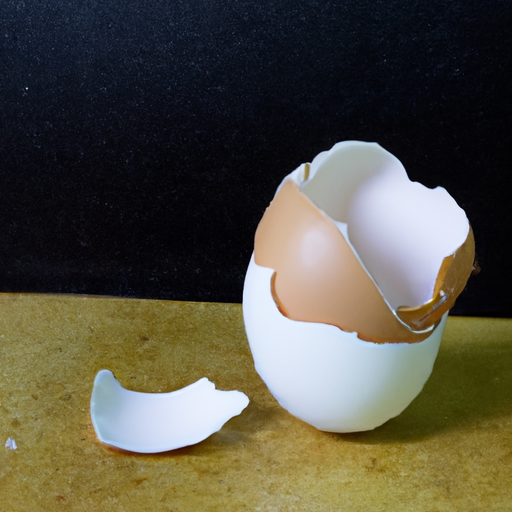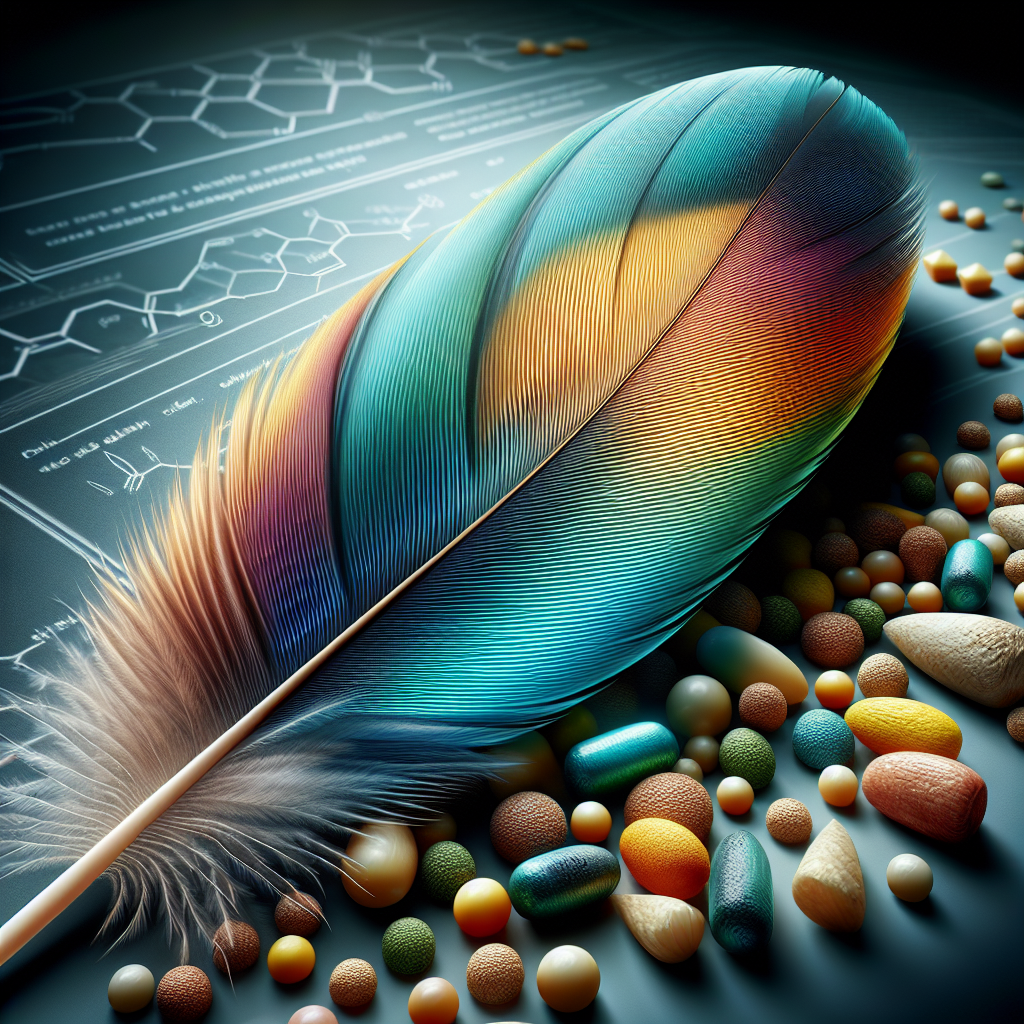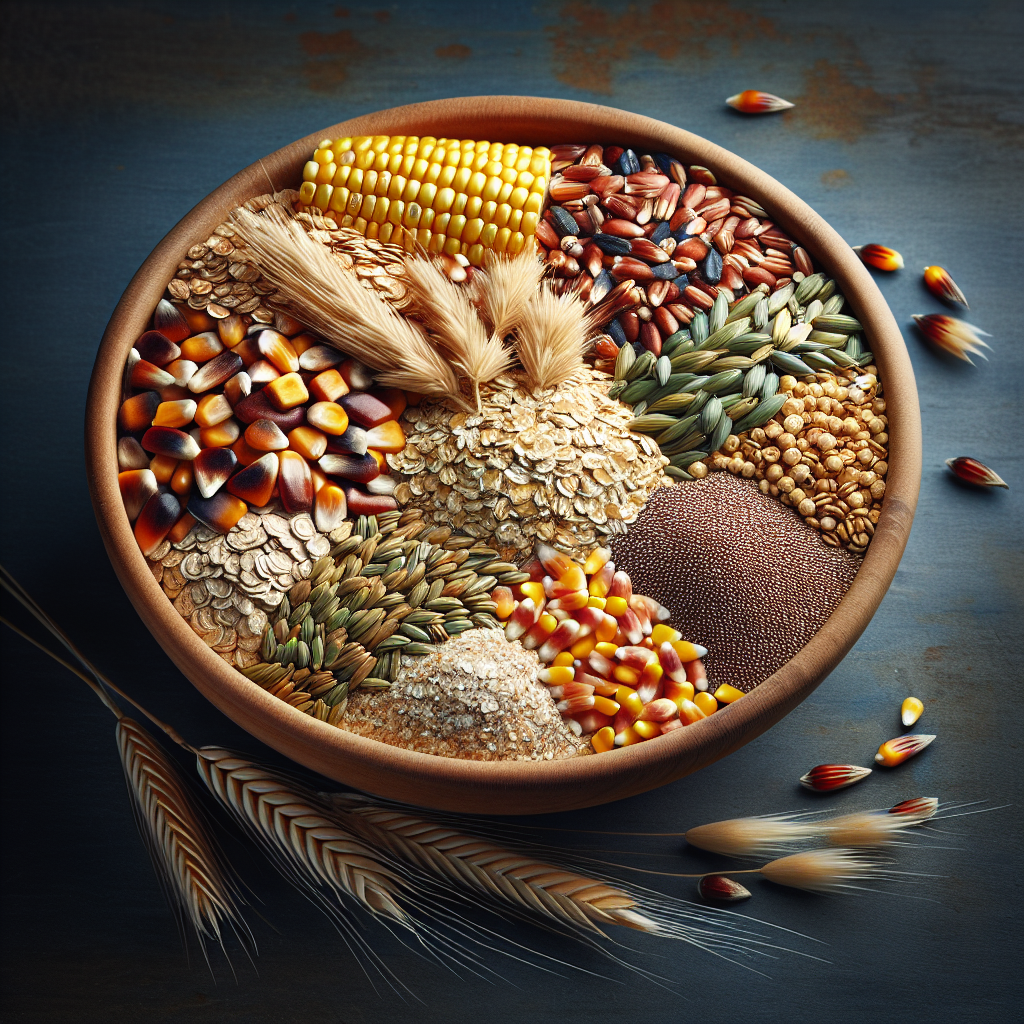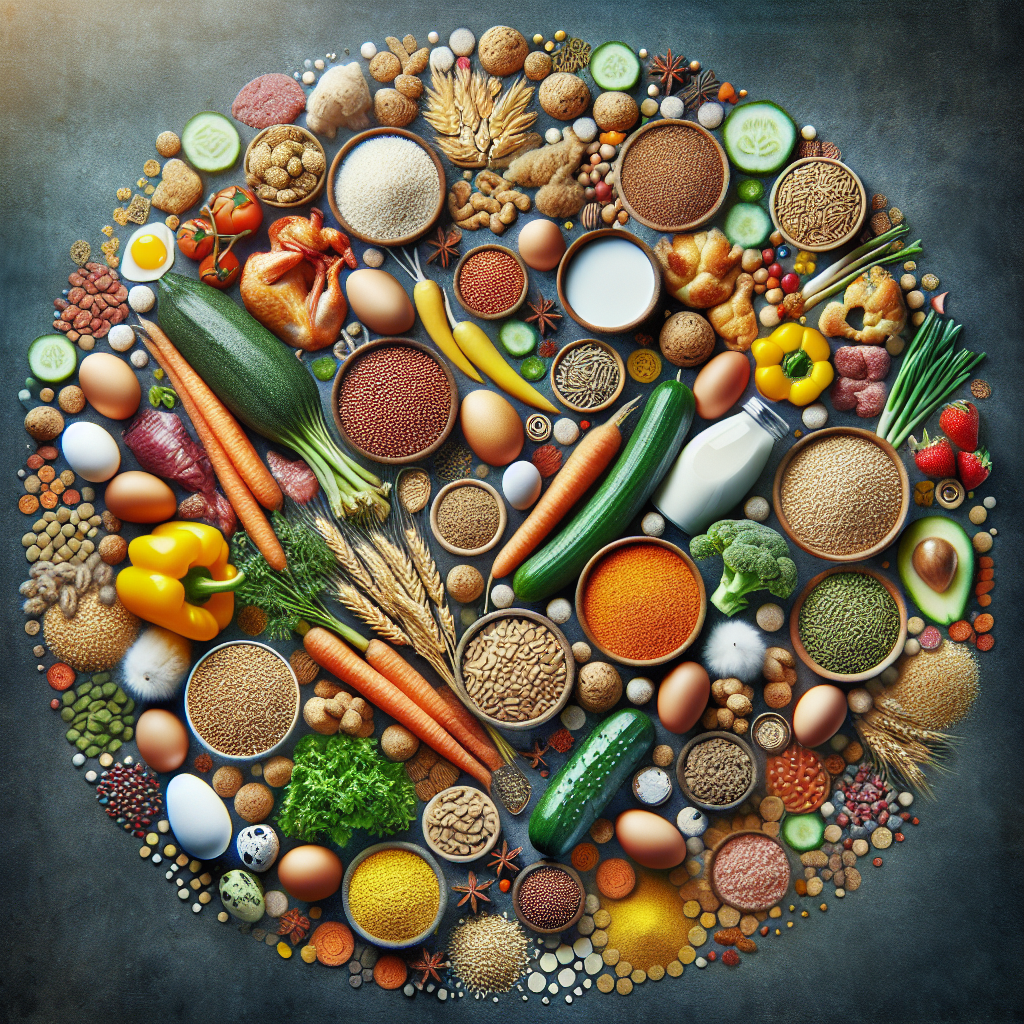Did you know that the vitamins and minerals in chicken feed play a vital role in maintaining the health and productivity of our feathered friends? These essential nutrients are not just additives; they have a direct impact on the composition of the feed itself, ensuring that it meets the nutritional needs of the chickens. From boosting their immune system to promoting proper growth and development, the presence of the right balance of vitamins and minerals in chicken feed is crucial for their overall well-being. Let’s take a deeper look at the significant role these nutrients play and why it’s essential to provide chickens with a well-balanced diet.
Overview
Importance of vitamins and minerals in chicken feed composition
Vitamins and minerals play a crucial role in the overall health and well-being of chickens. Just like humans, chickens require a balanced diet that includes essential nutrients to support their growth, development, and overall health. Including the right combination of vitamins and minerals in chicken feed is essential to ensure that the chickens receive the necessary nutrients for their optimal functioning.
Effects of vitamin and mineral deficiencies in chickens
Deficiencies in vitamins and minerals can have detrimental effects on the health and productivity of chickens. These deficiencies can lead to poor growth and development, decreased immune function, and reproductive problems. It is crucial for chicken farmers and poultry feed manufacturers to understand the consequences of vitamin and mineral deficiencies in order to provide chickens with the best possible nutrition.
Types of Vitamins
Fat-soluble vitamins
Fat-soluble vitamins are essential for the overall health and well-being of chickens. These vitamins, including vitamin A, vitamin D, vitamin E, and vitamin K, are stored in the fatty tissues of chickens’ bodies and can be utilized when needed. Fat-soluble vitamins are crucial for various functions, such as bone development, immune system support, and antioxidant protection.
Water-soluble vitamins
Water-soluble vitamins are another essential component of chicken feed composition. These vitamins, including vitamin C and B vitamins, are not stored in the body and must be supplied daily through the diet. Water-soluble vitamins play a vital role in energy metabolism, cell growth and repair, and overall immune system function.
Functions of Vitamins
Vitamin A
Vitamin A is essential for several important functions in chickens. It plays a critical role in maintaining healthy vision, promoting proper growth and development, and supporting the immune system. Vitamin A deficiency can result in poor feather quality, impaired reproductive performance, and increased susceptibility to infections.
Vitamin D
Vitamin D is crucial for the absorption and utilization of calcium and phosphorus, which are necessary for the development and maintenance of strong bones and eggs. It also plays a role in the regulation of calcium levels in the blood. A deficiency in vitamin D can lead to weak bones, reduced eggshell quality, and stunted growth in chickens.
Vitamin E
Vitamin E is a powerful antioxidant that helps protect cells from damage caused by free radicals. It is essential for maintaining a healthy immune system and promoting reproductive health in chickens. Vitamin E deficiency can result in muscular dystrophy, impaired fertility, and weakened immune response.
Vitamin K
Vitamin K plays a vital role in blood clotting, which is crucial for chickens’ overall health. It helps regulate the clotting of blood and prevents excessive bleeding. Vitamin K deficiency can lead to prolonged clotting time and increased risk of hemorrhages.
Vitamin C
Vitamin C is not naturally produced in chickens’ bodies; thus, it must be supplied through their diet. It acts as an antioxidant and supports immune function. Vitamin C deficiency can result in reduced disease resistance and increased susceptibility to infections.
B vitamins
B vitamins, including thiamin (B1), riboflavin (B2), niacin (B3), pantothenic acid (B5), pyridoxine (B6), biotin (B7), folate (B9), and cobalamin (B12), are essential for various metabolic functions in chickens. These vitamins play a crucial role in energy metabolism, protein synthesis, and overall growth and development.
Sources of Vitamins
Natural sources
Chickens can obtain vitamins from their natural diet, which includes a variety of plant-based and animal-based sources. For instance, vitamin A can be found in leafy green vegetables, carrots, and liver, while vitamin D can be synthesized through exposure to sunlight. Vitamin E is abundant in wheat germ, nuts, and vegetable oils, while vitamin K is present in green leafy vegetables like kale and spinach. B vitamins can be derived from grains, legumes, eggs, and meat.
Vitamin supplements
To ensure that chickens receive adequate levels of vitamins, vitamin supplements are often added to their feed. These supplements are specially formulated to provide the necessary vitamins in appropriate quantities, making it easier to meet the nutritional requirements of chickens. Vitamin supplements help bridge any potential gaps in vitamin intake and ensure optimum health and productivity of the chickens.
Effects of Vitamin Deficiencies
Poor growth and development
Vitamin deficiencies can significantly impact the growth and development of chickens. For example, vitamin A deficiency can lead to retarded growth, feather abnormalities, and skeletal deformities. Vitamin D deficiency can result in rickets, causing weakened bones and stunted growth. Lack of vitamin E can lead to muscle weakness and reduced overall growth rate.
Decreased immune function
Vitamins play a critical role in supporting a robust immune system in chickens. Deficiencies in vitamins, especially vitamin C, can weaken the immune response, making chickens more susceptible to infections and diseases. Vitamin C deficiency can lead to reduced disease resistance, slower wound healing, and increased mortality rates.
Reproductive problems
Vitamins are essential for proper reproductive health in chickens. A deficiency in certain vitamins, such as vitamin E, can result in reproductive problems, including decreased fertility, increased embryonic mortality, and reduced hatchability rates. Adequate vitamin intake is crucial for optimal reproduction and the overall success of breeding programs.
Types of Minerals
Macro minerals
Macro minerals, also known as bulk minerals, are required in relatively large amounts by chickens. These minerals include calcium, phosphorus, potassium, sodium, and magnesium. These minerals are vital for bone development, nerve function, muscle contraction, and various metabolic processes in chickens.
Micro minerals
Micro minerals, also known as trace minerals, are required in smaller amounts by chickens but are still essential for their optimal health. These minerals include iron, zinc, manganese, copper, selenium, and iodine. They play various roles in enzymatic reactions, immune system function, antioxidant activities, and hormone synthesis.
Functions of Minerals
Calcium
Calcium is crucial for the development and maintenance of strong bones and eggshells. It is also involved in muscle contraction, nerve function, and blood clotting in chickens. Calcium deficiency can lead to weak bones, skeletal deformities, and reduced eggshell quality.
Phosphorus
Phosphorus works in conjunction with calcium to support bone development and maintenance in chickens. It is also essential for energy metabolism, DNA synthesis, and overall growth. Phosphorus deficiency can result in poor growth, reduced feed efficiency, and skeletal abnormalities.
Potassium
Potassium is necessary for maintaining proper fluid balance, nerve function, and muscle contraction in chickens. It also plays a role in regulating blood pressure and pH levels. Potassium deficiency can lead to reduced growth, muscle weakness, and abnormal heart functions.
Sodium
Sodium is crucial for maintaining proper hydration, nerve function, and acid-base balance in chickens. It also plays a role in nutrient absorption and muscle contraction. Sodium deficiency can result in reduced appetite, poor growth, and muscle cramps.
Magnesium
Magnesium is involved in various physiological processes in chickens, including energy metabolism, enzyme activation, and bone development. It is also crucial for maintaining heart health and muscle function. Magnesium deficiency can lead to reduced growth, abnormal heart functions, and muscle spasms.
Iron
Iron is essential for the production of hemoglobin, which carries oxygen in the blood. It is also involved in energy metabolism and overall growth. Iron deficiency can result in anemia, reduced growth, and poor immunity in chickens.
Zinc
Zinc plays a vital role in immune system function, enzyme activity, and protein synthesis in chickens. It is necessary for overall growth and development, reproductive health, and feather formation. Zinc deficiency can lead to poor feather quality, reduced growth, and impaired immune response.
Manganese
Manganese is involved in various enzymatic reactions and plays a role in bone development, energy metabolism, and overall growth. It also contributes to reproductive health and eggshell quality in chickens. Manganese deficiency can result in reduced growth, skeletal abnormalities, and poor hatchability rates.
Copper
Copper is necessary for enzymatic reactions, iron metabolism, and the development of connective tissues in chickens. It also plays a role in pigmentation and overall growth. Copper deficiency can lead to skeletal abnormalities, reduced feather pigmentation, and impaired lipid metabolism.
Selenium
Selenium is an essential component of antioxidant enzymes in chickens. It helps protect cells from oxidative damage and supports immune system function. Selenium deficiency can result in weakened immune response, reduced growth, and increased susceptibility to diseases.
Iodine
Iodine is necessary for the synthesis of thyroid hormones, which regulate metabolism and overall growth in chickens. It also plays a role in feather formation, reproduction, and immune function. Iodine deficiency can lead to reduced growth, poor feather quality, and impaired thyroid function.
Sources of Minerals
Plant-based sources
Minerals can be obtained naturally through a variety of plant-based sources. For example, calcium can be derived from legumes, leafy green vegetables, and certain grains. Phosphorus is abundant in grains, legumes, and oilseeds. Potassium can be found in fruits, vegetables, and grains. Other minerals, such as magnesium, iron, zinc, and selenium, can also be derived from a balanced plant-based diet for chickens.
Animal-based sources
Animal-based sources also play a role in providing minerals to chickens. For instance, bone meal and fish meal are excellent sources of calcium and phosphorus. Oyster shells and shellfish by-products can provide additional calcium for eggshell formation. Meat and seafood can contribute to the intake of various minerals, including iron, zinc, and selenium.
Mineral supplements
In some cases, mineral supplements may be necessary to ensure that chickens receive adequate levels of minerals. These supplements are designed to fill any nutritional gaps that may exist in the diet. Mineral supplements come in various forms, such as powders, granules, or liquids, and can be added to chicken feed to meet the specific mineral requirements of the birds.
Effects of Mineral Deficiencies
Weak bones and skeletal deformities
Mineral deficiencies, particularly in calcium and phosphorus, can lead to weak bones and skeletal deformities in chickens. Insufficient amounts of these minerals can result in abnormal bone development, leading to conditions like rickets or leg deformities. It is crucial to provide chickens with adequate calcium and phosphorus to ensure healthy bone growth and structure.
Reduced eggshell quality
Mineral deficiencies, especially in calcium, can directly impact the quality of eggshells produced by chickens. Without sufficient calcium intake, the eggshells may become weak, thin, or brittle, making them more prone to breakage. Eggshell quality is of utmost importance for both commercial egg production and backyard poultry keeping, as it affects the marketability and hatchability of eggs.
Impaired muscle function
Minerals such as potassium and magnesium are essential for proper muscle function in chickens. Deficiencies in these minerals can result in muscle weakness, cramping, and abnormal muscle contractions. Adequate intake of these minerals is necessary for chickens to maintain optimal muscle health and support their overall mobility and physical activity.
Anemia
Mineral deficiencies, particularly in iron, can lead to anemia in chickens. Anemia is characterized by a reduced number of red blood cells or a decrease in hemoglobin levels, which are responsible for carrying oxygen throughout the body. Anemic chickens may exhibit signs of weakness, fatigue, and reduced overall performance.
Poor reproduction
Mineral deficiencies can have detrimental effects on the reproductive health of chickens. For example, calcium and phosphorus deficiencies can result in reduced egg production, poor eggshell quality, and increased embryonic mortality. Lack of zinc can lead to decreased fertility and impaired hatchability. Providing adequate levels of minerals in chicken feed plays a critical role in ensuring successful breeding and reproductive performance.
Optimizing Vitamin and Mineral Content in Chicken Feed
Balancing vitamin and mineral ratios
Optimizing the vitamin and mineral content in chicken feed requires careful consideration of nutrient ratios. Certain vitamins and minerals interact with each other and can affect their absorption and utilization in the body. Balancing these ratios is important to ensure that chickens receive the right amount of each nutrient and avoid any potential imbalances or deficiencies.
Providing adequate levels of essential nutrients
To optimize the vitamin and mineral content in chicken feed, it is essential to provide adequate levels of essential nutrients. This can be achieved through a combination of natural sources, such as plant-based and animal-based ingredients, as well as the use of supplements when necessary. Regular monitoring of chickens’ health and performance can help assess the effectiveness of the feed composition and make any necessary adjustments to meet their specific nutritional requirements.
In conclusion, vitamins and minerals play a vital role in the composition of chicken feed. They are essential for various physiological functions, growth, immune system support, and reproductive health in chickens. Proper understanding of the types, functions, sources, and effects of vitamins and minerals is crucial for ensuring optimal nutrition and overall well-being of chickens. By providing the right balance of vitamins and minerals in chicken feed, farmers can help their flocks thrive and maximize their productivity.




